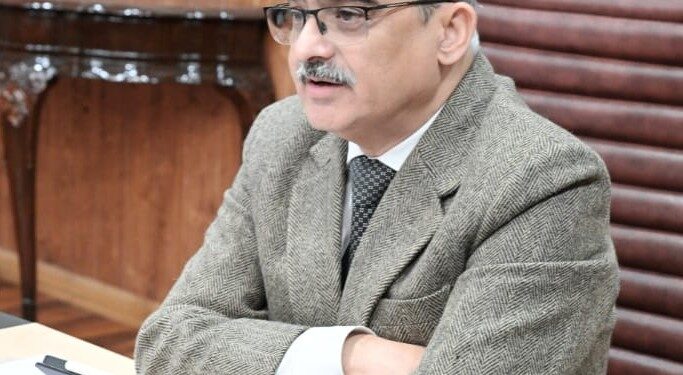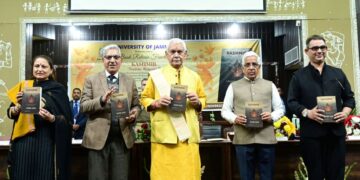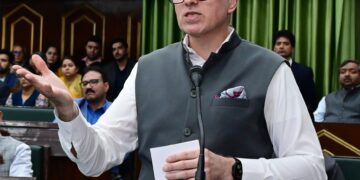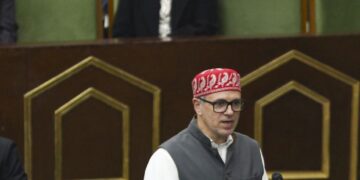Jammu: In a step towards countering the growing menace of drug addiction in Jammu and Kashmir, Chief Secretary, Atal Dulloo today held a high-level consultation with Member NITI Aayog, Dr V.K. Paul, seeking expert guidance to evolve a comprehensive, effective and sustainable strategy to combat substance abuse across the UT.
According to an official press release, the consultation session brought together leading national-level experts from AIIMS New Delhi and PGIMER Chandigarh, besides senior officers and health administrators from J&K.
The meeting was steered by the Secretary, Health & Medical Education (H&ME), and attended by the Managing Director, National Health Mission; Director SKIMS; Principals of Government Medical Colleges; and Heads of Departments of Psychiatry from GMC Srinagar and GMC Jammu.
While addressing the gathering, the Chief Secretary outlined the gravity and dimensions of the drug abuse problem in the UT, highlighting ongoing initiatives, institutional mechanisms and coordinated efforts being undertaken by various agencies.
He elaborated on the multi-pronged strategy adopted by the administration, which rests on five key pillars of strict enforcement, Information, Education and Communication (IEC) campaigns, counselling, treatment, and rehabilitation aimed at ensuring both immediate intervention and long-term recovery of victims.
Emphasizing the need for a community-centric approach, the Chief Secretary sought expert inputs from Dr Paul on strengthening the network of counsellors down to the grassroots level, including educational institutions, Primary Health Centres (PHCs) and local communities.
He further stressed the importance of developing a more robust rehabilitation framework, supported by an effective monitoring mechanism to prevent relapse and enable reintegrated individuals to lead dignified and productive lives in society.
Appreciating the proactive approach of the J&K Administration, Dr V.K. Paul commended its vision of looking beyond mere treatment and focusing on holistic rehabilitation and community mobilization. He noted that the proposed model, with strong emphasis on counselling and rehabilitation, brings greater vigour and sustainability to the overall strategy, making it innovative and comprehensive.
Dr Paul also shared insights from the Himachal Pradesh model of substance abuse management, wherein a structured treatment network supported by national experts has yielded positive results. He suggested studying this model in detail and adapting its framework, with necessary modifications, to suit the specific needs and socio-cultural context of Jammu and Kashmir.
Assuring full support from NITI Aayog, Dr Paul stated that a dedicated team of experts would assist the UT Administration in preparing a comprehensive action plan. He identified the core focus areas of the proposed action-oriented strategy as IEC activities, enhanced patient services, structured treatment protocols and systematic rehabilitation of recovered individuals.
The experts from AIIMS and PGIMER also shared valuable insights on clinical treatment protocols, counselling methodologies and best practices in managing substance use disorders.
Earlier, Secretary H&ME, Dr Syed Abid Rashid Shah, presented an overview of the existing framework, policies, infrastructure and human resource capacity currently in place to tackle the drug addiction challenge in the Union Territory, setting the context for detailed deliberations.
The consultation marks a crucial milestone in strengthening Jammu and Kashmir’s institutional response to drug addiction and reflects the administration’s commitment to safeguarding public health and ensuring a healthier future for its citizens.








